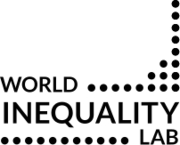“Open-access, transparent, reliable inequality information is a global public good.”
- We live in a world data-abundant world and yet basic information about income and wealth inequality are missing. Growth numbers are published every year by governments across the globe, but they do not inform about how growth is distributed across the population – about who gains and who loses from economic policies. Accessing such data is critical for democracy.
- This report presents the most up-to-date synthesis of international research efforts to track global inequalities. The data and analysis presented in the report is based on the work of over a hundred researchers over four years, located across all continents and contributing to the World Inequality Database (WID.world), maintained by the World Inequality Lab. This vast network collaborates with tax authorities, statistical institutions, universities and international organizations to harmonize, analyze and disseminate comparable international inequality data.
The aim of the World Inequality Report 2022 is to present
the latest and most complete data available on inequality
to inform democratic debate worldwide. It updates
our 2018 World Inequality Report, adding new data with gender, environment, and tax justice dimensions.
Economic inequality is widespread, to some extent inevitable, and always at the center of debates about how societies should be organized. The unexpected COVID crisis illustrates this clearly. It has shut down large sectors of the economy, depriving many of their livelihood. Yet in many countries, compensatory income support systems were set in place very quickly, demonstrating the great power of societies, through their governments, to alleviate inequality and to avoid social and political catastrophes.
Generally speaking, how economies should distribute the incomes they generate, across national populations and across the world is the source of heated debate. Is economic growth distributed fairly? Is the social safety net wide and deep enough? Are low-income countries catching up with richer ones? Are racial and gender inequalities falling? Around the world, people hold strong and often contradictory views on what constitutes acceptable and unacceptable inequality, and what should be done about it.
Our objective is not to get everyone to agree about inequality: this will never happen, for the simple reason that no single, scientific truth exists regarding the ideal level of inequality, let alone the ideal social policies and institutions that would be required to achieve and maintain it. Ultimately, we can only make these difficult decisions through public deliberation, and via our political institutions. Our goal here then is more modest: we hope and believe that it is possible to agree about certain facts about inequality. The immediate goal of this report is to bring together new data series from the World Wealth and Income Database (WID.world) in order to document several new findings about global inequality and its evolution.
WID.world is a cumulative and collaborative research process that began in the early 2000s and now includes over one hundred researchers aiming to cover all countries in the world. WID.world provides open access to the most extensive available database on the historical evolution of the distribution of income and wealth, both within and between countries.
The 2022 report present novel findings in four main areas.
First,weprovidetrulycomprehensiveincome inequality data for almost all countries in the world over long time periods. This allows us to present systematic data on inequality at the global level and to analyze how it has evolved over time. Global income inequality has always been very great, reflecting the persistence of a world economic system that is extremely hierarchical both between countries and within them. Global inequality increased between 1820 and 1910, in the context of the rise of Western dominance and colonial empires, and then stabilized at a very high level between 1910 and 2020. Since 1980, domestic inequality has grown, but inter-national inequality started to decline thanks to fast growth in the large so-called emerging economies. These two effects balance each other out so that in past few decades, global inequality has been basically stable, albeit at a very high level.
Second, our 2022 report provides much more in-depth evidence on wealth and its distribution worldwide than has been available until now. In recent decades, the weight of private wealth has increased at the expense of public wealth, due to deregulation, privatization, and increasing government debt. Furthermore, the concentration of private wealth has also increased, with the largest wealth increases occurring among the billionaire class.
Third, we analyze gender inequality by creating systematic data on the share of world labor income earned by women and how well represented women are at the top of the labor income distribution. Globally, the share of labor income paid to women stands at slightly under 35% and shows a positive trend over the past 30 years, up from around 31% in 1990. Men earn approximately twice as much as women across the world, on average. Further, the data reveal that women are significantly underrepresented at the top of the distribution, even though the fraction of women at the top has been increasing since the 1990s in many countries. Strikingly, women are now better represented at the top in some emerging economies such as Brazil than in advanced economies such as the United States.
Fourth, we present new evidence of inequality in carbon emissions across the world. Using a newly assembled set of carbon and energy accounts based on historical records, input– output tables and distributional statistics, we show how total carbon emissions are distributed not only between countries but also within them. Worldwide, carbon emissions are about as unequally distributed as income. The top 1% of carbon emitters contributed significantly more to global emissions growth than the entire bottom half of the global population. Policies aiming at reducing global emissions should, then, primarily target the very high emitters.
Finally, we discuss other policies that could reduce inequality. Progressive wealth taxes have (re)emerged in the debate as a promising tool for curbing extreme wealth concentration and generating much needed government revenue. Using our data, we analyze the revenue potential of wealth taxes and discuss how they could be successfully enforced based on lessons learned from existing and past progressive wealth taxes.
Currently, multinational companies can easily escape paying corporate taxes by shifting their profits to tax havens, but there is an on-going international effort to set up a minimum tax agreement. We discuss the role of corporate taxation in fighting inequality, and global vs. unilateral approaches to tax justice. We also offer broader perspectives on how to reinvent the social state in the 21st century.
As this report shows, WID.world has produced valuable inequality data in many dimensions, yet we are acutely aware that we still face important limitations in our ability to measure the evolution of income and wealth inequality. Our objective in WID.world and in the World Inequality Report is not to claim that we have perfect data series, but rather to make explicit what we know and what we do not know, and to flag clearly which countries are doing better in terms of data production and publication in their efforts to establish inequality statistics.
Part of our aim is to put pressure on governments and international organizations to release more raw data on income and wealth. In our view, the lack of transparency about income and wealth inequalities seriously undermines the possibilities for peaceful democratic discussion in today’s globalized economy. In particular, it is crucial that governments provide public access to reliable and detailed tax statistics, which in turn requires that they operate properly functioning reporting systems for income, inheritance, and wealth. Without this, it is very difficult to have an informed debate about the evolution of inequality and what should be done about it.
Our most important reason for providing all the necessary details about data sources and concepts that underlie all our inequality estimates is to enable interested citizens to make up their own minds about these important and difficult issues. Economic issues do not belong to economists, statisticians, government officials, and business leaders. They belong to everyone, and it is our chief objective to contribute to the power of the many.



